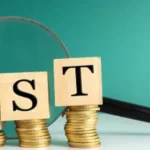The Enforcement Directorate (ED) has filed charges against four individuals in connection with a ₹730 crore GST scam. Shell companies were allegedly used to create fake invoices and claim illegitimate input tax credits, defrauding the exchequer.
Image Source:-moneylife
ED Busts ₹730 Crore GST Scam
In a major crackdown on financial fraud, the Enforcement Directorate (ED) has filed charges against four individuals linked to a whopping ₹730 crore Goods and Services Tax (GST) scam. The accused are said to have operated a sophisticated network of shell companies to issue fake invoices, thereby illegally availing and passing on input tax credit (ITC).
Shell Companies & Fake Transactions
According to the ED’s investigation, more than a dozen shell companies were created across multiple states. These companies had no actual business activity or physical presence but generated hundreds of crores worth of fake invoices to facilitate fraudulent GST claims. These operations were carried out under the garb of trading various commodities including scrap, chemicals, and electronics.
Laundering of Taxpayer Money
The scam not only defrauded the Indian government of massive tax revenue but also violated provisions of the Prevention of Money Laundering Act (PMLA). Funds obtained from the fraudulent ITC were layered through multiple accounts and diverted into personal investments, luxury purchases, and overseas remittances.
Who’s Involved?
The ED’s chargesheet names four prime suspects, including the masterminds behind the shell companies. Raids conducted earlier revealed incriminating documents, digital evidence, and unaccounted cash. These developments followed a wider crackdown by the Directorate General of GST Intelligence (DGGI), which first flagged the suspicious activity.
Ongoing Investigations
This case is part of a broader effort by the government to curb GST fraud and plug revenue leakages. Authorities are now examining the trail of transactions to determine whether more players, including chartered accountants or complicit bank officials, were involved in enabling the scam.
India’s War Against Economic Offenders
This bust highlights the urgent need for technological integration, data-sharing among agencies, and stricter compliance enforcement in India’s financial system. Experts believe that real-time invoice matching, AI-based audits, and closer monitoring of high-risk sectors will be vital to preventing such large-scale frauds in the future.














